“People never explain to you exactly what they think and feel and how their thoughts and feelings work, do they? They don’t have time. Or the right words. But that’s what books do. It’s as though your daily life is a film in the cinema. It can be fun, looking at those pictures. But if you want to know what lies behind the flat screen you have to read a book. That explains it all.” – Sebastian Faulks, A Week in December
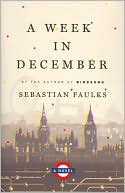 |
A Week in December, by Sebastian Faulks If I mention the movie Crash, it’s only because I know almost everyone has seen it and will understand how one might craft a novel around a multiplicity of characters living unconnected lives who, subtly in some cases and overtly in others, exert influence on one another. So intertwined are these separate lives, at times Sebastian Faulks makes London seem quite a small town. In addition to the several characters, two high-tension threats loom throughout the novel: a planned jihadist terror attack on a London hospital and a takedown of international banking by an utterly amoral hedge fund manager. Of the two, one threat eventually falls apart, but the greater one comes to fruition. This is an exciting, and at least when it comes to complex financial malfeasance, educational novel, with well-developed characters and excellent timing. |
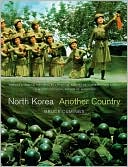 |
North Korea: Another Country, by Bruce Cumings Bruce Cumings comes across as an apologist for North Korea. It seems to be his mission to counterbalance the picture Americans receive from what he might describe as a lock-step anti-NK media. According to Cumings, Kim Il Sung was not a poseur with a made-up history, installed by the Soviets at the end of WWII, but was in fact a well-known guerrilla fighter and leader in the 1930s and 40s. Kim Jung Il is not the dissipated playboy depicted in Western media, and the government of NK, for all its faults, has always acted rationally, at least according to its own lights. Up until the 1980s, citizens of North Korea rightly felt they had much to be proud of. Cumings focuses on the American air war against NK during the Korean conflict, describing how we devastated the countryside, reduced cities and towns to rubble (regardless of their strategic value to the enemy), and incinerated a good part of NK’s population with napalm. I have to say he does have a point: I myself saw the parochial-mindedness of the American military in Seoul during a command briefing at CINCUNC in the mid 1980s, where all the slides referring to North Korea called it “nk,” pointedly uncapitalized. We have been in a petty tit-for-tat relationship with this nation since the late 1940s, and it’s about time someone grew up. It certainly won’t be the North Koreans. That leaves us. |
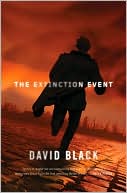 |
The Extinction Event, by David Black The Extinction Event lives somewhere in the murder mystery/thriller neighborhood, but promises an element of science fiction in the form of, well, an “extinction event”; i.e., a threat to all life on earth. I was expecting, I don’t know, maybe Andromeda Strain with some Bourne Identity thrown in? What I got was the standard hard-boiled detective novel, except the detective’s actually a boozy small-town lawyer. But the thrills are there, and the book moves right along. The hard-boiled shamus and his gorgeous shamette zip around upstate New York, beating up recalcitrant witnesses and getting beat up and shot at in return, with causal sex thrown in, slowly zeroing in on the answer to the mystery of who might have killed their former employer and the prostitute he was snorting coke with. About halfway through I realized nothing had yet been said about any extinction event, and began to wonder how and when it would come into play. In the second half of the book the author began dropping hints that the threat to all mankind was electric radiation from overhead power lines, and that Con Edison was lurking behind the murders and the mysterious Cowboy (always capitalized) who begins trailing our amateur sleuths. At that point, things began to get ludicrous. In the climactic action scene, the boozy small-town lawyer drives in a demolition derby (!), where the Cowboy, apparently having stolen another contestant’s car, tries to ram him to death. The two wind up on top of a Ferris wheel during a lightening storm, grappling in hand-to-hand combat, and the boozy lawyer prevails. But still no extinction event! Then, literally in the final three pages, it turns out that a giant asteroid is coming to destroy the earth. What. A. Ripoff. David Black, you are one shameless hack. And oh by the way, lightning comes before thunder, not the other way around. |
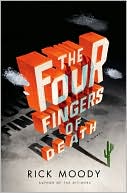 |
The Four Fingers of Death, by Rick Moody I read about Rick Moody’s book in the Tucson Weekly, a local alternative newspaper, where he was billed as a worthy successor to Kurt Vonnegut. Now that I’ve waded through Moody’s not-very-Vonnegutish novel, I think the review gave it raves because much of the action — when it is not set on Mars — is set in a thinly-disguised Tucson. One of Kurt Vonnegut’s fictional characters was the sci-fi writer Kilgore Trout. Rick Moody’s Kilgore Trout is Montese Crandall. Montese, in an overlong, rambling preface, sets out to novelize the screenplay of a crappy 1963 sci-fi movie, The Four Fingers of Death. The bulk of Rick Moody’s novel is Montese Crandall’s novelization. The first half of Crandall’s novelization is actually damn good. It recounts a manned mission to Mars, a mission that goes gradually, horribly wrong. Of the nine astronauts who launch from Earth to Mars, only eight arrive, and one of them is crazy. Once on the surface, several more die, and the remaining few become infected with a Martian bacillus that slowly disassembles their bodies. This part of the book is written in a factual, hard science fiction style, and is quite gripping. In the second half of Crandall’s novelization, the story loses that grip. Back in Tucson, here called Rio Blanco (for no apparent reason, since nothing else about it is disguised), a cast of hundreds — and one chimpanzee — subject the reader to seemingly-endless discursive exposition on the state of society, education, culture, class, and economics, circa 2030, with very little actual action. The action — what there is of it, popping up in small increments every 30 pages or so — centers on the return to Earth of one survivor of the Mars mission, who arrives in the form of a severed arm infected with the Martian bacillus. The arm — with its four fingers of death — winds up infecting hoards of people, as NASA tries to quarantine southern Arizona. Somewhere in here, a Korean doctor injects stem cells from the frozen cadaver of his wife into a laboratory chimp, who becomes intelligent and falls in love with a human female lab assistant. And then it gets sillier. I completely lost the thread on Montese Crandall, so bogged down did I become in the second half of his novelization. But I loved the first part, which can almost stand on its own as a complete science fiction novel. Overall, a mixed piece of work. If I could wish one thing of Rick Moody, it would be focus. He had it during the first half. He lost it in the second. Vonnegut was always focused, and not nearly as discursive and gabby as Moody. Matter of fact, I think I’ll re-read me some Vonnegut. That’s one good thing Rick Moody has done for me. |
 |
The Thousand Autumns of Jacob de Zoet, by David Mitchell David Mitchell is amazing. The Thousand Autumns of Jacob de Zoet is nothing like his earlier novels; this one is a straight historical romance. But there is an echo of Mitchell’s earlier work: as with the pre-WWII Mongolian settings where much of the action in Ghostwritten takes place, Mitchell writes of a time and place largely unknown to Western audiences. In this case it is the closed nation of Japan at the end of the 18th century, during the waning days of the Dutch East India Company’s trading empire, specifically the city of Nagasaki and the heavily guarded and quarantined man-made island Dejima, the only Japanese soil where foreign devils are permitted to set foot. Among these foreign devils is Jacob de Zoet, a clerk sent to Dejima to straighten out the company’s books in the wake of years of corruption. And as with Mitchell’s other novels, the story within is full of surprises, rich in detail, populated with unforgettable characters, and utterly engrossing. I’m starting to wonder whether there’s anything Mitchell can’t write about. Including this latest, I have now read all five of David Mitchell’s novels. But since I checked them out from my local library, I don’t have them at home to reread. I will buy all five — as I will buy any future David Mitchell novels — so that, as with my hard-bound 21-volume set of Patrick O’Brian’s Aubrey/Maturin novels, I can read them again and again. I can’t give an author a greater endorsement than that. If you haven’t read Mitchell, it’s time you started. |
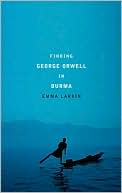 |
Finding George Orwell in Burma, by Emma Larkin An interesting book about Burma and George Orwell. Orwell, of course, is famous for two novels that could easily describe life in totalitarian Burma: 1984 and Animal Farm. He also wrote a memoir titled Burmese Days, and in fact served with the British colonial police in that country during the 1920s. Emma Larkin makes the case that Orwell’s Burmese experience influenced much of his later writing. The bulk of Larkin’s story is about Burma itself, the Burma of today, whose citizens live under a repressive dictatorship that controls the population down to the lowest levels, with layers and layers of informers and enforcers, a state where generals have become the very embodiment of the pigs that pervert the revolution that created Animal Farm, a state that lacks only telescreens to become the Oceania of Orwell’s 1984. |
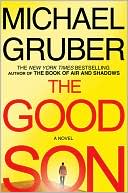 |
The Good Son, by Michael Gruber I enjoyed parts of The Good Son; I hated others. Michael Gruber’s novel is a 100-page thriller padded out to nearly 400 pages with explanatory speeches put into the mouths of secondary characters you really don’t give a shit about . . . and if you, like me, think religion is just an excuse for people to oppress other people, you won’t give a shit about the content of the speeches either. The thriller, though, is whiz-bang . . . complex and timely. Too bad Gruber didn’t stick closer to it. |
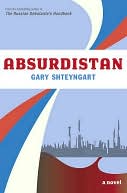 |
Absurdistan, by Gary Shteyngart I shouldn’t review Absurdistan because I didn’t finish it. Gary Shteyngart’s comic novel falls into the Not My Thing category. My Thing is a compelling story or a book with something important to say. Ideally both. Absurdistan is written brilliantly, but the story isn’t compelling, and, read as hard as I may, doesn’t have anything to say. What might make an entertaining 30-minute TV sitcom — 22 minutes without commercials — won’t keep me going through a 400-page novel. And yes, I did skip ahead. And no, I didn’t find anything much different than what I’d already read in the first 100 pages. |
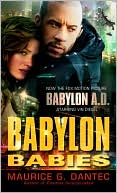 |
Babylon Babies, by Maurice Dantec Dantec is a French writer, and I suspect his novel is poorly translated. Why else would “smoked meat” be italicized? Not one but twice, a character purchases smoked meat. Everyone says “gonna,” as in “I’m gonna do this or that,” but there are no other contractions or slang — never a “we’re” or “I’ll,” always “we are” or “I will.” I tripped on repeated references to the XXth and XXIst centuries. And while I might use “Dr.” when making out a check to my dermatologist, I would never write a sentence like “The dr. sat down on a chair.” Babylon Babies starts out as a good war story, focused on a mercenary soldier fighting in a war-torn region between China, Mongolia, and Russia. The conflict is based on current realities, projected only a little into the future. Dantec quickly introduces science fiction elements, a la the near-future fiction of William Gibson — cyberpunks, mafia figures, artificial intelligence, secretive labs manipulating DNA, and an interesting plot line where the mercenary is hired by the Russian mafia to transport a pregnant girl carrying genetically-modified babies out of harm’s way, then protect her to term. All good so far. Then, halfway through the novel, Dantec lays on a bunch of New Age nonsense about cosmic snakes and the wisdom of primitive peyote-smoking native shamans, a frankly unbelievable war between outlaw motorcycle gang militias with military capabilities approaching those of First World nation-states, and two rival religious groups modeled on the Heaven’s Gate cult, complete with male and female Do and Ti figures. We go from a conceivable, reality-founded near future to mere fantasy, mystic crystal hippie fantasy at that. At first I thought Dantec was joking, but as the plot became more and more ridiculous I began to think he must actually believe all this UFO cult conspiratorial horseshit, and I lost my grip on the story, flipping past page after page of self-indulgent drug-addled nonsense, looking for the threads I’d lost — the soldier of fortune, the woman he’s supposed to be guarding, the babies. The threads were still there, buried under a thick layer of distracting, repetitive verbiage, but I had to hunt for them. Odd diction is one thing, but can the novel’s progression from solid near-future sci-fi to Weekly World News Bat Boy fantasy also be a result of poor translation? Somehow I doubt it, and I doubt I’ll be reading any more work by Maurice Dantec. |
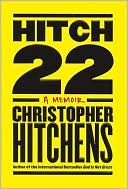 |
Hitch-22, by Christopher Hitchens I greatly enjoyed Christopher Hitchens’ memoir. Though we grew up in different cultures, though he went to better schools, we were born within two years of each other and have lived through the same times. We started our political and social lives on the left but gradually moved rightward with age and experience. I was not a Marxist, as Hitchens was, but I embraced many of the positions he did, and I find that our current political views are similar. All of which is by way of saying I feel comfortable with Hitchens, not at all put off by anything he says in his memoir, and that if you feel strongly otherwise, you might take my 3.5 star rating with a grain of salt. In my review of Gore Vidal’s memoir, Point to Point Navigation, I expressed frustration with Vidal’s inveterate name-dropping. Christopher Hitchens drops names left and right, but to better purpose. Where Vidal seems merely to be calling attention to himself, Hitchens is trying to lead us to Auden’s ironic points of light, flashing in the darkness. I’m jealous — would that I could have met even a few of the people Hitchens knows. Parts of Hitchens’ memoir are intensely personal and honest. Yet at other times he is oblique and secretive — not one word about his marriages, for example, as if he can honestly separate his marriages from the rest of his life. If you, like me, sometimes find yourself having a hard time explaining how your own political views have changed over time — particularly when you’ve done a 180 on an issue — Hitchens will help you understand yourself better, and be able to put it into words others can understand. In this he performs a great service. Now that I know more about the man, I am determined to read his past writings, starting with god is Not Great. |